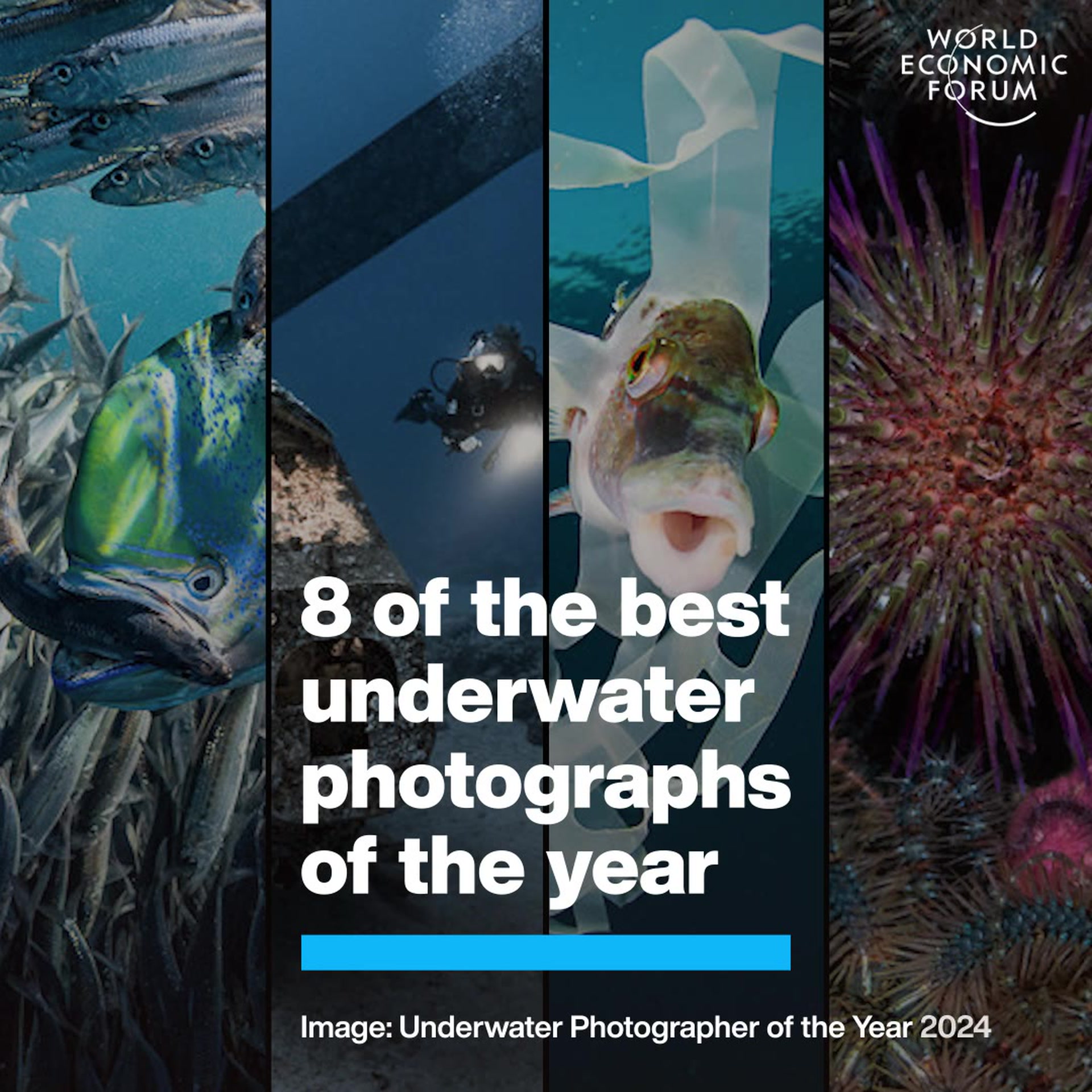The seafood industry must pull our oceans back from the brink

Image: REUTERS/Joseph Okanga

Get involved with our crowdsourced digital platform to deliver impact at scale
Stay up to date:
Ocean
The phrases a drop in the ocean or plenty more fish in the sea expose a worldview of the oceans as an infinite, resilient resource. This needs updating. The oceans are finite, fragile and filled with our garbage.
At the first UN conference on the oceans in New York this month, nations have come together to act decisively to pull the oceans back from the brink. There is still time, it makes economic sense and doing so is essential for long-term security. But they cannot do it alone. The world’s largest seafood companies met in New York to put in place a plan to ensure a sustainable oceans for future generations.
The marine world is a global commons essential to humanity, providing protein to three billion people. Ocean health is deeply entwined with human health. Moreover, the oceans have helped keep Earth’s climate relatively stable by absorbing 95% of the heat caused by greenhouse gas emissions.

Yet, we are watching the oceans decline. Ocean acidification is happening at a rate unprecedented in perhaps 300 million years. The seas are losing oxygen as they warm. Dead zones are expanding. Coral reefs, the oceans’ most biodiverse ecosystem, are dying. Arctic sea ice is waning and, ominously, warmer waters are encroaching on the gigantic Antarctic ice sheet risking destabilisation.
It was always assumed the oceans were broad and deep enough to take anything humans threw at them: the solution is dilution. In the last two decades, though, marine researchers have been shocked by the speed and scale of change.
Wild fish capture peaked around 1996 and has been declining 0.38 million tonnes per year according to the UN’s Food and Agriculture Organization, though others say the decline may be three times greater. Only 10% of global fish stocks are under fished – the rest are either at capacity or beyond sustainable levels. Aquaculture has expanded dramatically in recent decades, and has potential to further increase, but also struggle with a number of sustainability challenges, such as dependence on wild fish in feeds, disease, and overuse of antibiotics.
It is make or break time for the seafood industry. The science is now very clear on the scale of the challenge.
But the industry controls its own destiny. Reforming fisheries management could not only prevent collapse, it could increase catch by 16 million tons per year by 2050.

While science is showing that sustainable seafood is possible, research also shows that now just a small handful of companies dominate marine ecosystems. We call these “keystone” actors, as they, like keystone species in ecosystems that have a disproportionate influence on the health of the oceans.
Now, after two intense dialogues between scientists and industry leaders in the last eight months, the nine largest companies are ready to commit to major reforms and fight together for the future of our oceans. These dialogues are unique because they connect science to business, wild capture fisheries to aquaculture and are truly global bringing together companies from Asia, Europe and North America.
At the summit, under the leadership of a new initiative, Seafood Business for Ocean Stewardship, we are announcing a pledge by leading companies to eliminate unreported, unregulated and illegal products and any form of modern-day slavery from supply chains. But the problem is complex. We need greater governance of the oceans and coastal areas. Pollution from farming into coastal waters must be reduced. Plastics and other pollutants can no longer be dumped in the ocean. And, of course, greenhouse gas emissions need to peak by 2020 and fall precipitously to around zero by 2050. This needs greater international cooperation and here again the seafood industry leaders now say they must do more to put pressure on governments.
The oceans, like the rest of Earth, have been relatively stable for 10,000 years. It took us just fifty years to undermine this stability. More than any other part of our planet, the oceans have masked humanity’s impact. Our actions in the next fifty years will determine the fate of the oceans for the coming 10,000 years. This is some responsibility, but we are optimistic that we can become good ocean stewards because now our own health and ocean health are inseparable.
Seafood Business for Ocean Stewardship (SeaBOS) – pledge for ocean stewardship, launched at the UN oceans conference, New York, 9 June 2017.
Companies signing the pledge:
Maruha Nichiro Corporation
Nippon Suisan Kaisha, Ltd
Thai Union Group
Marine Harvest ASA
Dongwon Industries
Nutreco (owner of Skretting)
Cargill Aqua Nutrition
Cermaq (subsidiary of Mitsubishi Corporation)
Kyokuyo Co., Ltd
Don't miss any update on this topic
Create a free account and access your personalized content collection with our latest publications and analyses.
License and Republishing
World Economic Forum articles may be republished in accordance with the Creative Commons Attribution-NonCommercial-NoDerivatives 4.0 International Public License, and in accordance with our Terms of Use.
The views expressed in this article are those of the author alone and not the World Economic Forum.
Related topics:
The Agenda Weekly
A weekly update of the most important issues driving the global agenda
You can unsubscribe at any time using the link in our emails. For more details, review our privacy policy.
More on OceanSee all
William Austin
April 17, 2024
Mark John Costello
April 8, 2024
Robin Pomeroy and Linda Lacina
March 28, 2024
Meg Jones
March 14, 2024






